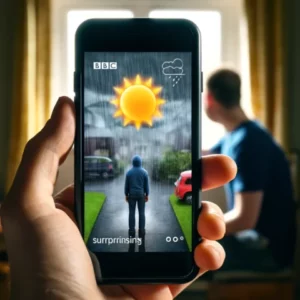The amazing scientific discoveries made during the 19th and 20th centuries have ensured that the rumble of science in our everyday life doesn’t ever stop. The elevation of literacy and the increasing pace of idea exchange has helped bring a thirst for knowledge development to a new generation. People want to learn about the ins and outs of our planet Earth and the incredible ecosystem that it encompasses. Science Podcasts provided an amazing opportunity for people to learn things without it becoming bored.
Now people were interested in how the atmosphere worked, what exactly is the ecosystem, and more by listening to the countless podcasts that are available for free on the internet. It doesn’t matter if you want to have the latest space news, commentary by researchers on what is breaking news this week in science, debunking some very popular theories in scientific development, and even about how you can survive on Mars, there is something here for every person who is listening and wants to hear all the juicy and crispy bites of knowledge.Â
Table of contents
Radiolab
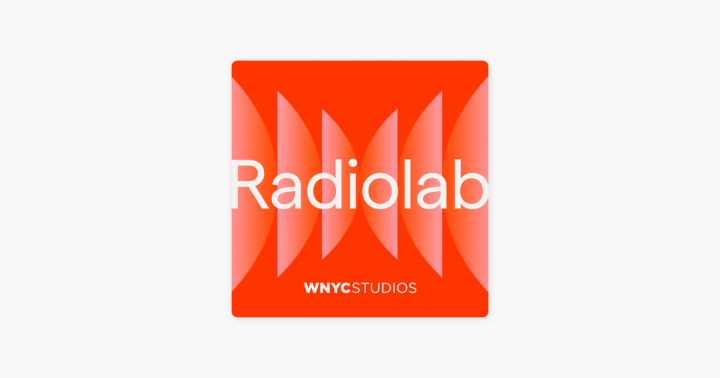
Did you think that the list would start without this mega mammoth? A public Radio production, Radiolab is an extremely popular podcast that uses music, sound effects, and compelling interviews to make sure that you are hooked.
While some would argue that it is not exactly a science podcast, Radiolab’s strength lies in its storytelling and the ability to make us curious about information, which makes it an ideal addition to our list for science podcast listeners.
Radiolab has episodes on a variety of topics, from autoimmune disease to the torture device of our high school years the Periodic Table.
Radiolab is available on a variety of platforms, ranging from the ever-popular Spotify, Apple Podcasts, and YouTube to the very niche ones like Pocket Cast, and more.
The Naked Scientists
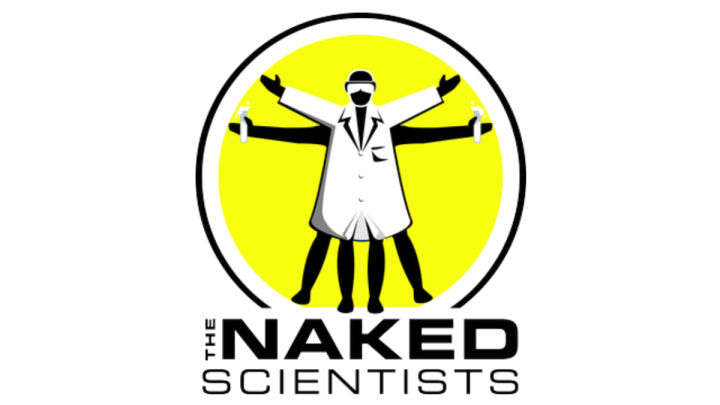
The Naked Scientists Podcast is something of an ecosystem. There is the titular Podcast where the hosts cover plenty of topics ranging from the science of sharks, menopause, the moon landing, and more.
Some episodes include interviews with top scientists and researchers, while others cover science experiments that everyone can try at home.
Each episode operates like something that has jumped out of a news program, where the hosts interview the top scientists and researchers and discuss with them their personal science development.
Several podcasts in the family focus on topics like genetics, neuroscience, etc. But if you are on the run and don’t exactly have time to listen to 60-minute length episodes, you can always check out their “In Short” or “Question of the Week”, which are merely minutes-long podcasts.
The Naked Scientists Podcast is available on a variety of platforms, ranging from the ever-popular Spotify, Apple Podcasts, and YouTube to the very niche ones like Pocket Cast, Podcast Addict, and more.
The Molecular Cell Biology Podcast

The newest podcast on the list, but don’t you dare underestimate this one. The Molecular Cell Biology Podcast is a great fun way to introduce cell biology topics to those who are new to it, or even the ones that just need to brush up on the topic.
Hosted by the ever-charismatic Dr. Germán Rosas-Acosta of the University of Texas, he takes the listeners on a fun ride through various topics that you would likely find in a college course on molecular cell biology.
It is available on a variety of platforms, ranging from the ever-popular Spotify, Apple Podcasts, and YouTube to the very niche ones like Pocket Cast, Podcast Addict, and more.
Science Friday
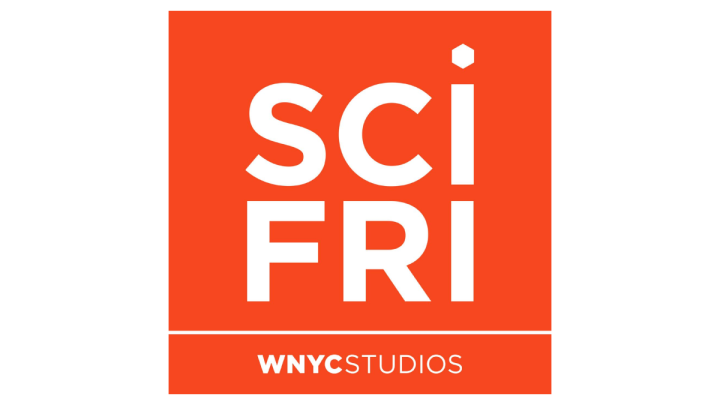
Do you want a regular dose of science talk with your meal? Want to know the hows, whys, and where, with some ice cream? Well, WNYC’s Science Friday has got your back.
Ira Flatow hosts it, and each episode functions like a comprehensive fact-check for prominent science stories. The show poses questions about these stories, engaging researchers and scientists in interviews to provide insights.
They have also done a huge coverage of the coronavirus pandemic, which is very helpful for people all around the world.
Science Friday is available on a variety of platforms, ranging from the ever-popular Spotify, Apple Podcasts, and YouTube to the very niche ones like Pocket Cast, Podcast Addict, and more.
Hidden Brain

Hidden Brain is a weird mix of neuroscience, psychology, economics, and self-help. It comes together for fun and great science podcasts.
It explores what forms and influences human behavior while questioning the meaning of being human. The length of the episodes is 55 minutes.
Don’t you ever wonder how you can practice self-compassion? And what exactly are the benefits of a grateful mindset?
Isn’t all these things just moral jargon to make us capable of existing in society with some semblance of human behavior? Hidden Brain has you covered.
Hidden Brain is available on a variety of platforms, ranging from the ever-popular Spotify, Apple Podcasts, and YouTube to the very niche ones like Pocket Cast, Podcast Addict, and more.
Wired Science
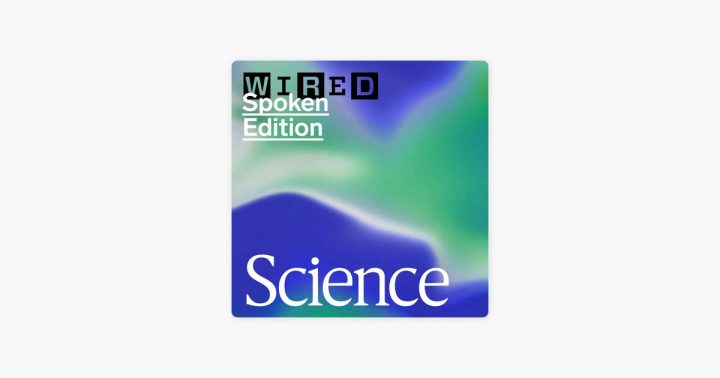
Wired, a renowned tech magazine offers dedicated podcasts sharing their top stories for your listening pleasure.
They publish so much more than gadgets, with topics such as climate change, biotech, and genetic engineering under their belt.
It covers current science while emphasizing technology’s cultural impact, keeping listeners informed and engaged.
Wired Science is available on a variety of platforms, ranging from the ever-popular Spotify, Apple Podcasts, and YouTube to the very niche ones like Pocket Cast, Podcast Addict, and more.
The Happy Scientist
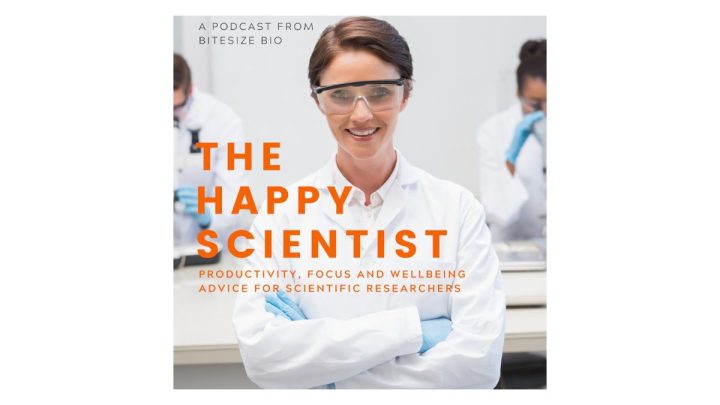
Do you know that even scientists sometimes feel out of their dept? While we often envision scientists as invincible problem solvers, they’re human, occasionally delving into atoms’ mysteries.
The Happy Scientist is a podcast that is created by the team at Bitesize Bio that gives great advice on how to best balance personal and professional time and needs with a healthy dose of facts.
Topics range from imposter syndrome to speaking up appropriately, and fostering imagination, all within a scientific context. It is all wrapped up in nice podcast boxes of 55 minutes length of goodness. Some episodes are revealed as live shows, where the host answers questions asked during it.
The Happy Scientist is available on a variety of platforms, ranging from the ever-popular Spotify, Apple Podcasts, and YouTube to the very niche ones like Pocket Cast, and more.
The Life Scientific
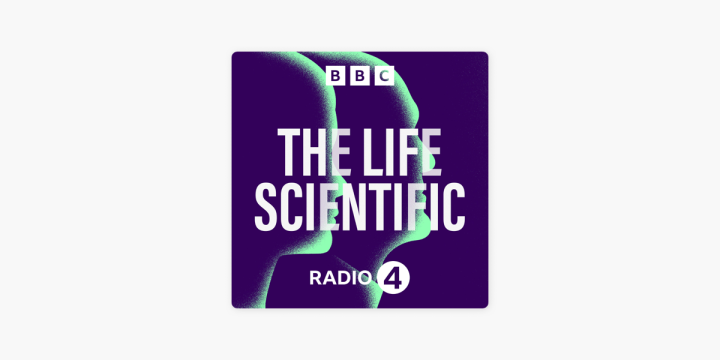
While numerous podcasts offer scientists’ advice to general listeners, fewer focus on scientists interviewing their peers.
The Life Scientific is a show hosted by the theoretical physicist superstar Professor Jim Al-Khalili who interviews other successful scientists about their personal and professional lives and work.
The guests on The Life Scientific can sometimes include other superstars like Professor Hannah Fry on Algorithms and Big Data, Professor Jane Clarke whose work on Protein folding is still being mentioned, and Professor Martha Clokie with viruses on the post Pandemic world.
Every episode is a gold mine of inspiration, a reminder that scientists, like us, face challenges and find motivation. The length of the episodes is usually between 20 minutes to 40 minutes.
Life Scientific is available on a variety of platforms, ranging from the ever-popular Spotify, Apple Podcasts, and YouTube to the very niche ones like Pocket Cast, and more.
How to Fail
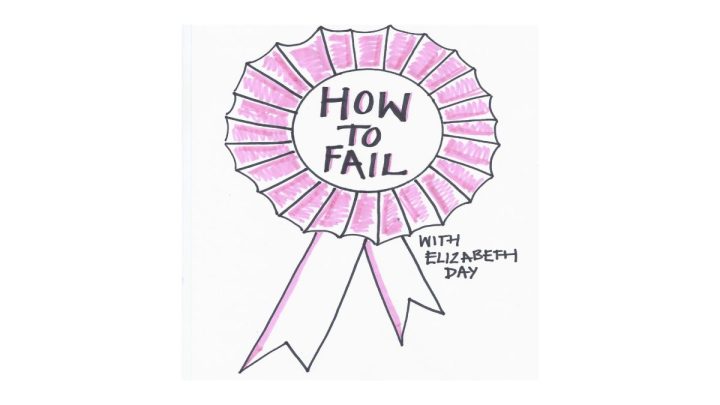
Has there ever been a person on this planet who has not experience failure? To fail is to have lived, and not failing in something means not having experienced the joy of living.
Elizabeth Day is a brilliant author and host who not only created the How to Fail show but also wrote a book on the subject.
In this late-night news-style podcast, listeners can expect fresh perspectives on failures and life’s wrong turns.
Humbling and refreshing, stars like Stanley Tucci openly shares failures and their journey to acceptance on the podcast.
How to Fail is available on a variety of platforms, ranging from the ever-popular Spotify, Apple Podcasts, and YouTube to the very niche ones like Pocket Cast, and more.
Science Vs
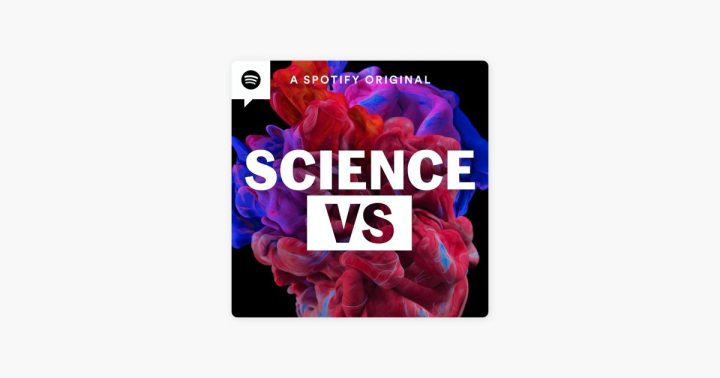
Remember during the Pandemic when anti-vaxxers were making ridiculous claims about the dangers of vaccines? There was so much debate right now about the effects of 5G. And who can ever forget the war on Plastic Straws in the last few years?
Would you like someone to clear up the facts whilst entertaining you? Well, Science Vs is here for you. Hosted by the enthusiastic journalist Wendy Zukerman, this podcast is a top contender in the science podcast arena.
The show has done a ton of episodes about the coronavirus while debunking the misinformation and rumors. For time-crunched listeners, there’s a concise “Shots of Science Vs” episode as an alternative to the full version.
Science Vs is available on a variety of platforms, ranging from the ever-popular Spotify, Apple Podcasts, and YouTube to the very niche ones like Pocket Cast, and more.
Infinite Monkey Cage
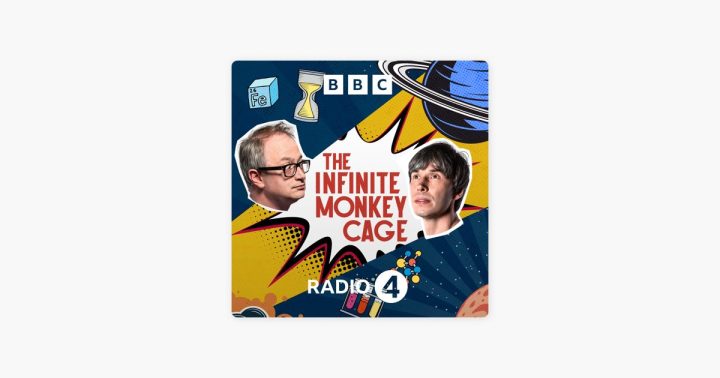
The Infinite Monkey Cage is a popular BBC Radio 4 show hosted by physicist Brian Cox and comedian Robin Ince.
The panel-style science podcasts feature a variety of science topics and guests, from actors like Sir Patrick Stewart to comedians like Stephen Fry. The show is easy to follow for listeners, and the banter between hosts is delightful.
Infinite Monkey Cage is available on a variety of platforms, ranging from the ever-popular Spotify, Apple Podcasts, and YouTube to the very niche ones like Pocket Cast, and more.
Sawbones: A Marital Tour of Misguided Medicine
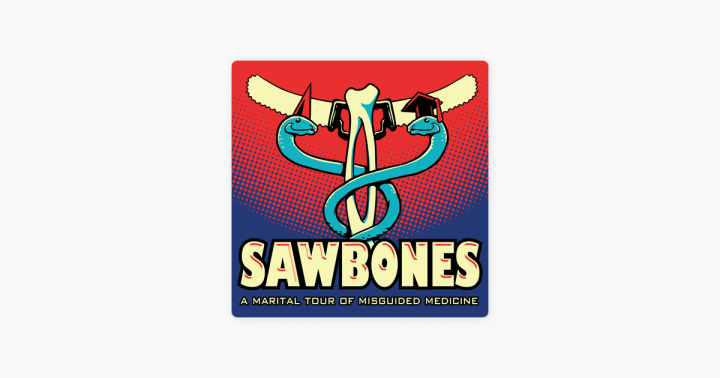
As the title implies, this show is hosted by a beloved married couple who’ve combined medical history and humor in podcasts for almost a decade.
The McElroys examine historical medical treatments, emphasizing vital figures and their impactful discoveries in each episode. The length of the episodes is usually 30 minutes long.
Sawbones: A Marital Tour of Misguided Medicine is available on a variety of platforms, ranging from the ever-popular Spotify, Apple Podcasts, and YouTube to the very niche ones like Pocket Cast, and more.
Do Podcasts Support Your Personal Development?
Listening to podcasts is a great way to boost a person’s curiosity. The best podcasts get listeners to get involved while telling a good story.
It is scientifically proven that Podcasts are good for your brain. A UC Berkeley student discovered that multitasking work with podcast listening activates various brain regions using functional MRI.
When Should You Listen to Science Podcasts?
Listening to science podcasts while you are doing personal monotonous work is the best way to enjoy it.
Science podcasts aid learning while enhancing personal development, making it effortless to stay updated and engaged.
What is the formula for good science podcasts?
The formula for good science podcasts is the way that they present the information to non-scientists.
Simple language and pop culture references can upgrade a decent show to being good, aided by an hour’s format.
Conclusion
It doesn’t matter the length and minutes that science podcasts have, but the personal development that science podcasts provide.
The length that science podcasts provide in understanding the universe around us is truly special. Gratitude is owed to scientists and researchers for generously sharing their knowledge and experiences with us.
Read More
- Apple Podcasts- A complete guide for everything you need to know!
- All you need to know about iOS 14.6 – What’s new to consider?
- Best iPhone podcast apps of 2025!









